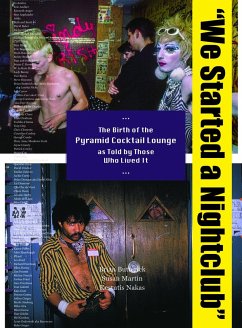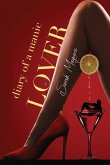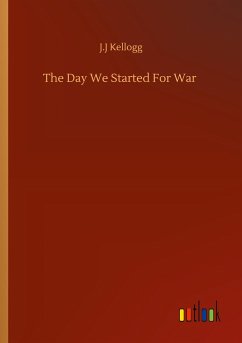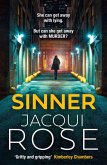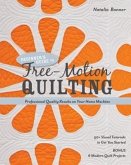We Started a Nightclub: The Birth of the Pyramid Cocktail Lounge as Told by Those Who Lived It is the story of the beginnings of the club that was the launching pad for countless talented performers, musicians, and artists-many at the earliest stages of their careers. It begins in 1981 at the last moment in the city's history when the East Village was considered a dangerous no man's land, rents were cheap, AIDS was still unknown, and a new generation of creators broke the mold and went on to make art in an atmosphere of unbridled celebration. An oral history told through more than 75 interviews, it covers the early years of the Pyramid from the time of its founding through its rise, near demise, and rebirth as the first producer of downtown's annual Wigstock festival. The book includes narrative commentary by Butterick, Martin, and Nakas; press releases, and never-before-seen photos, snapshots, flyers, and other ephemera The Pyramid, at 101 Avenue A, was ground zero for an explosion of creativity. In opposition to the conformity that defined the West Village, the Pyramid was run by gays, but never considered "a gay club". Instead, it offered a mixture of cultures, from groundbreaking, irreverent theater and experimental and hardcore music to "anti-drag" that challenged the norms of gender and sexual binaries. Theme nights and bar dancers, fixtures of the downtown avantgarde, and kids escaping their past and creating their futures all added to the club's popularity. The genius behind the club was 23-year-old Bobby Bradley, an impresario who established a collaborative atmosphere that mixed and matched performers of every stripe. Joining Bobby was a team of eager young artists, dancers, musicians, actors, and writers, telling the story of a new generation of artists in their own words. At the Pyramid, John Kelly, John Jesurun, Kestutis Nakas, and Ann Magnuson rubbed elbows with They Might be Giants, the Red Hot Chili Peppers, 3 Teen Kill 4, and performers like Ethyl Eichelberger, John Sex, Tabboo!, Hapi Phace, and Lady Bunny added their twist on drag with outrageous personas. By offering a home to obscure, genre-defying, experimental, and unpolished acts, the Pyramid played a crucial role in shaping the city's underground cultural scene for decades to come. By 1985, Bobby and his team had produced thousands of original performances and ushered in a time of intense creativity in the East Village. Sadly, addiction, AIDS, and other perils of human existence brought Bobby (and so many others) down; the story of his downfall marks the "end of the beginning" of the Pyramid in 1986. With reminiscences and anecdotes from performers and bar boys to doormen and DJs, the Cast of Characters section of the book includes descriptions of the 250+ people who have added their voices or are referenced in this history of those seminal times. We Started a Nightclub also includes excerpts of more than 50 Pyramid press releases written by Martin between 1983 and 1986, documenting the range of acts and cultural commentary at the heart of the club. Given the time constraints and limited communication channels of the analog age, many entries read like Felix Feneon's "Novels in Three Lines," compressed and intentionally humorous-a mirror of the personalities and satirical spirit of the club. Like C. Carr's "Fire in the Belly," We Started A Nightclub is an inside look at the cultural history of the East Village in the early 1980's, combining small anecdotes and larger narratives to capture the ethos of the Pyramid. Both the unsung heroes and the famous animate these pages with memories and backstories on people and events. Like Patti Smith's "Just Kids," it intimately touches the real lives of artists. And like Jean Stein's "Edie: an American Biography," the story of the club is told through the perspectives of those who lived it. What Studio 54 was for disco and pop culture, the Pyramid was for the alternative cultures of downtown NYC. The 2015 Howl exhibition, "Secrets of the Great Pyramid: The Pyramid Cocktail Lounge as Cultural Laboratory, curated by Brian Butterick, featured the voices, works, and ephemera of more than 50 artists associated with the Pyramid alongside performances and panel discussions. The exhibition remains one of Howl's most successful to date, demonstrating strong interest in the Pyramid and its place in cultural history. The book, for which interviews began in 2006, is timelier than ever as the only in-depth exploration of the Pyramid's origins. In 2021, the Pyramid closed permanently. Though the venue was no longer the cultural hotbed of its early years, its closure prompted an outpouring of reminiscence and mourning for a bygone era, amid a broad renewed interest in the art and culture of 1980s New York-the eras that predated rapid gentrification, and the sweeping impact of the AIDS epidemic.
Hinweis: Dieser Artikel kann nur an eine deutsche Lieferadresse ausgeliefert werden.
Hinweis: Dieser Artikel kann nur an eine deutsche Lieferadresse ausgeliefert werden.

